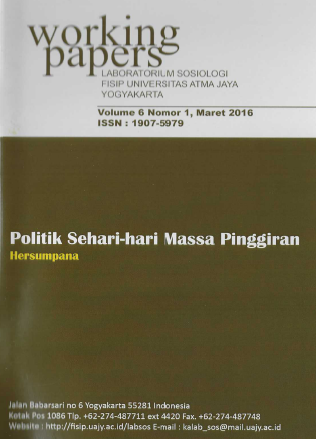Urban development presents an opportunity for improving welfare. However, for those who are unable to seize this opportunity—both migrants and local residents—it can lead to their becoming marginalized groups. These peripheral groups are unable to fully integrate into the modern urban system. Nevertheless, such marginalized communities develop their own strategies to survive. The Bong Suwung community, for example, creates its own economic and political tactics to face urban modernity, which, in the eyes of the authorities, often labels them as a “disturbance” or a negative image of the city. Despite this, there exists an invisible relationship of power between the authorities and the communities deemed illegal. The phenomenon of beking (protection) represents a strategy that emerges in the lives of groups like Bong Suwung, exemplified by the involvement of certain military personnel with illegal communities—a situation described by Edward Aspinall and Gerry Van Klinken as “entrenched illegality.” This section further discusses the everyday political strategies of the Bong Suwung community and the transformation of the community amid the urban development of Yogyakarta in relation to state power.
Published: 2016-03-01

